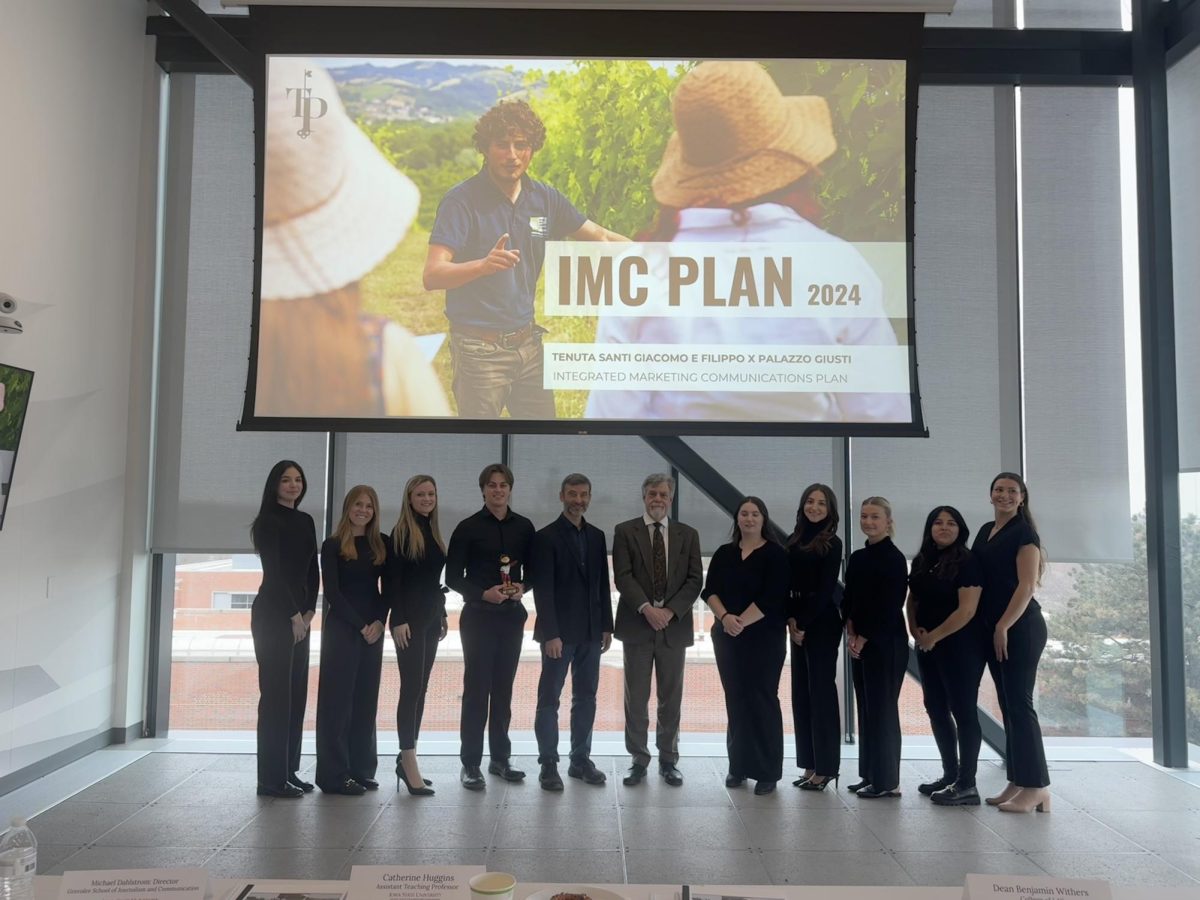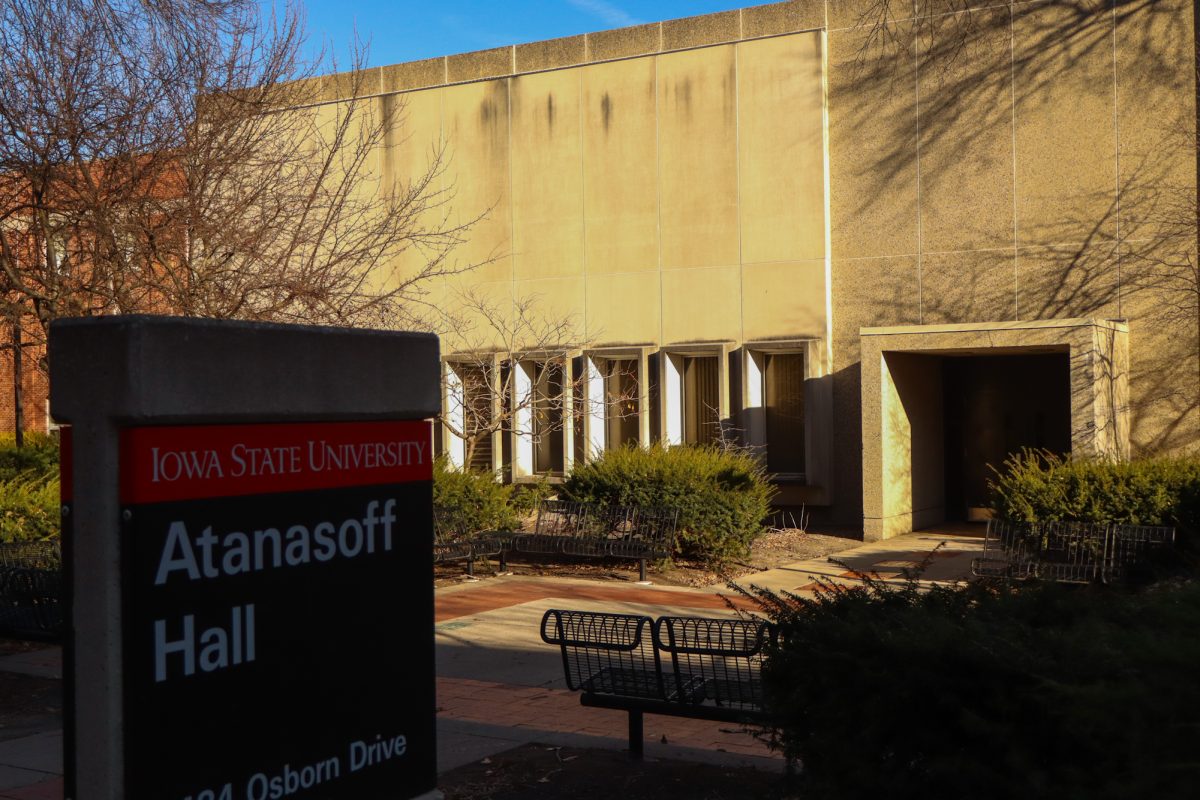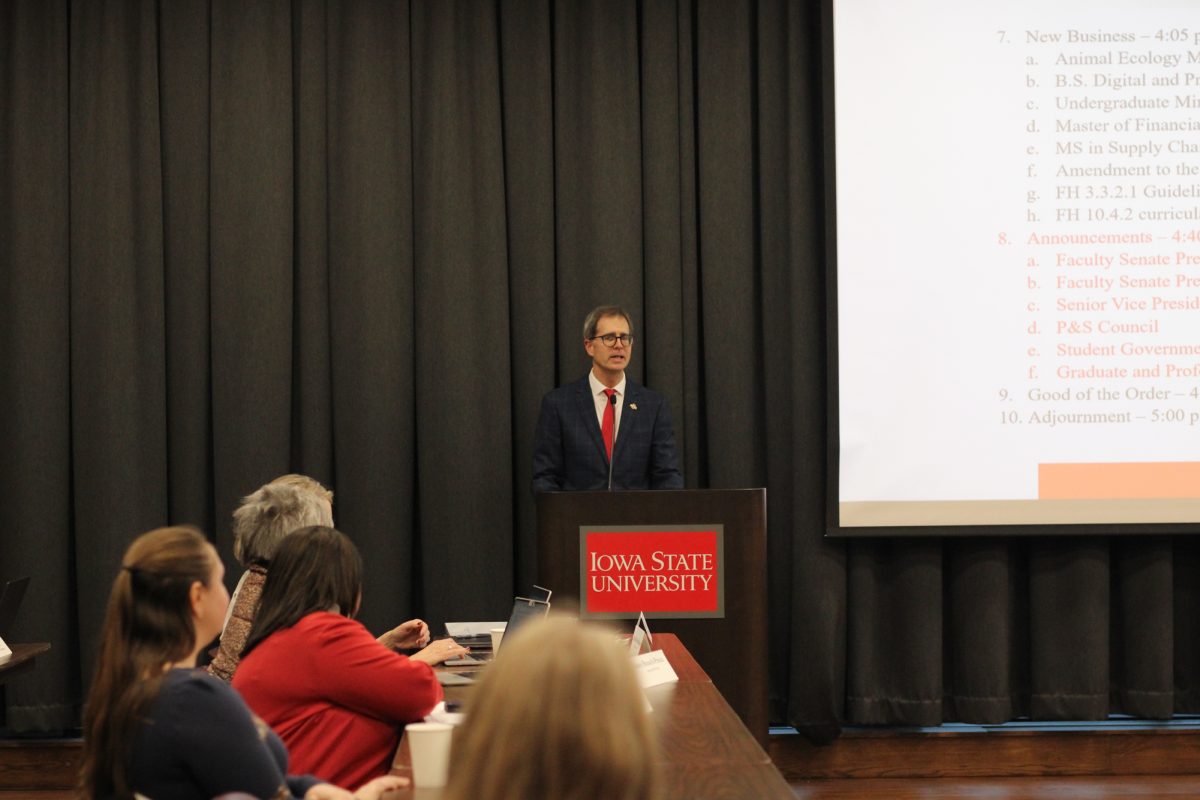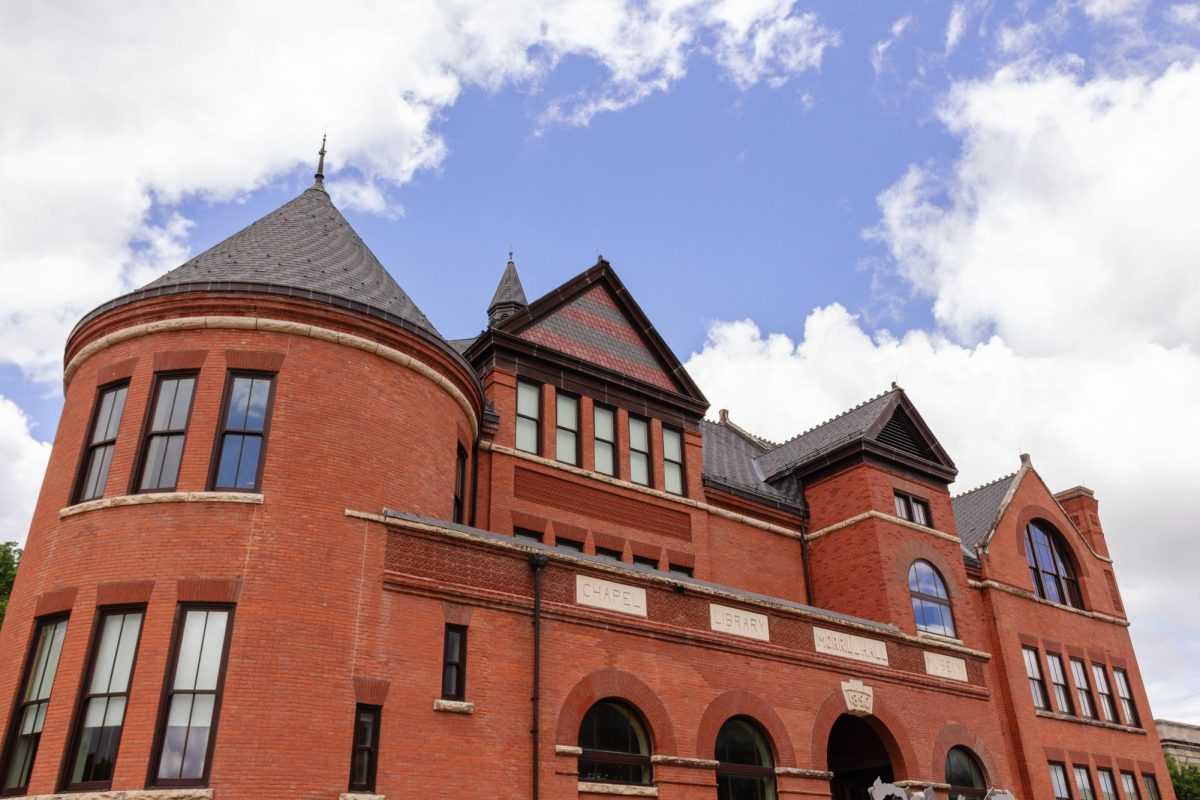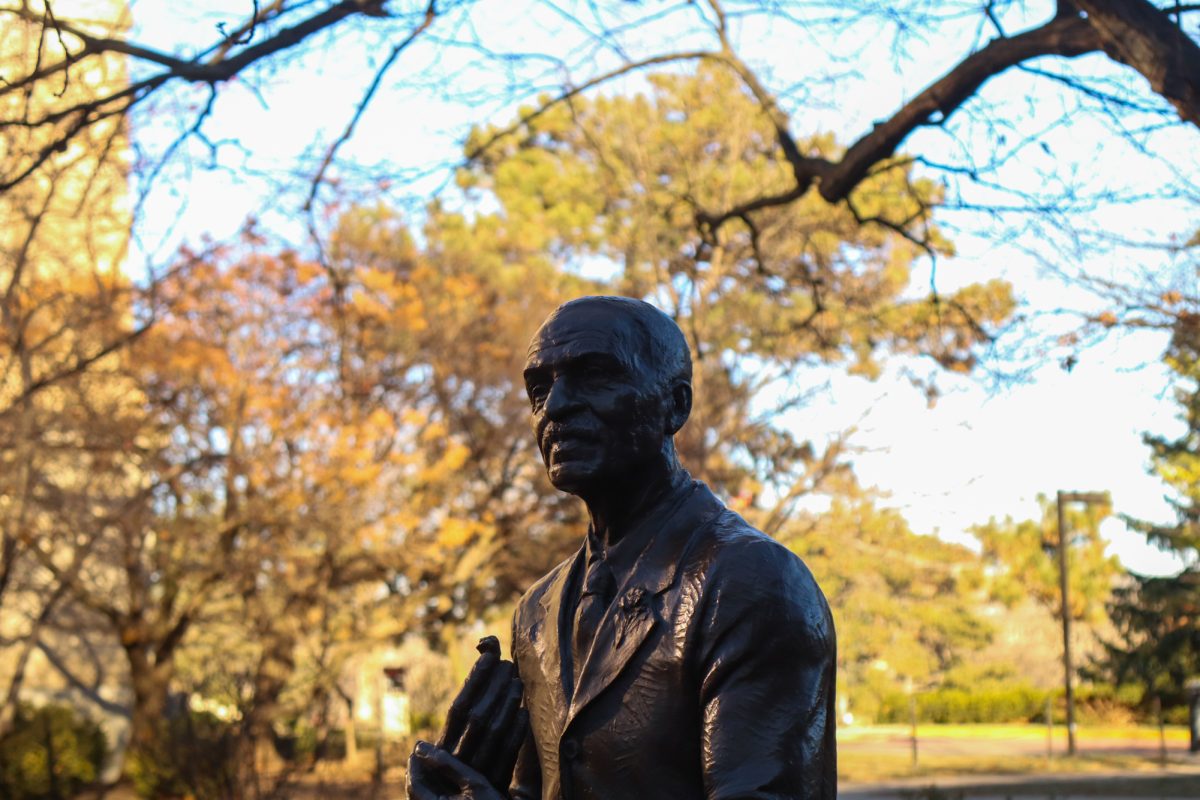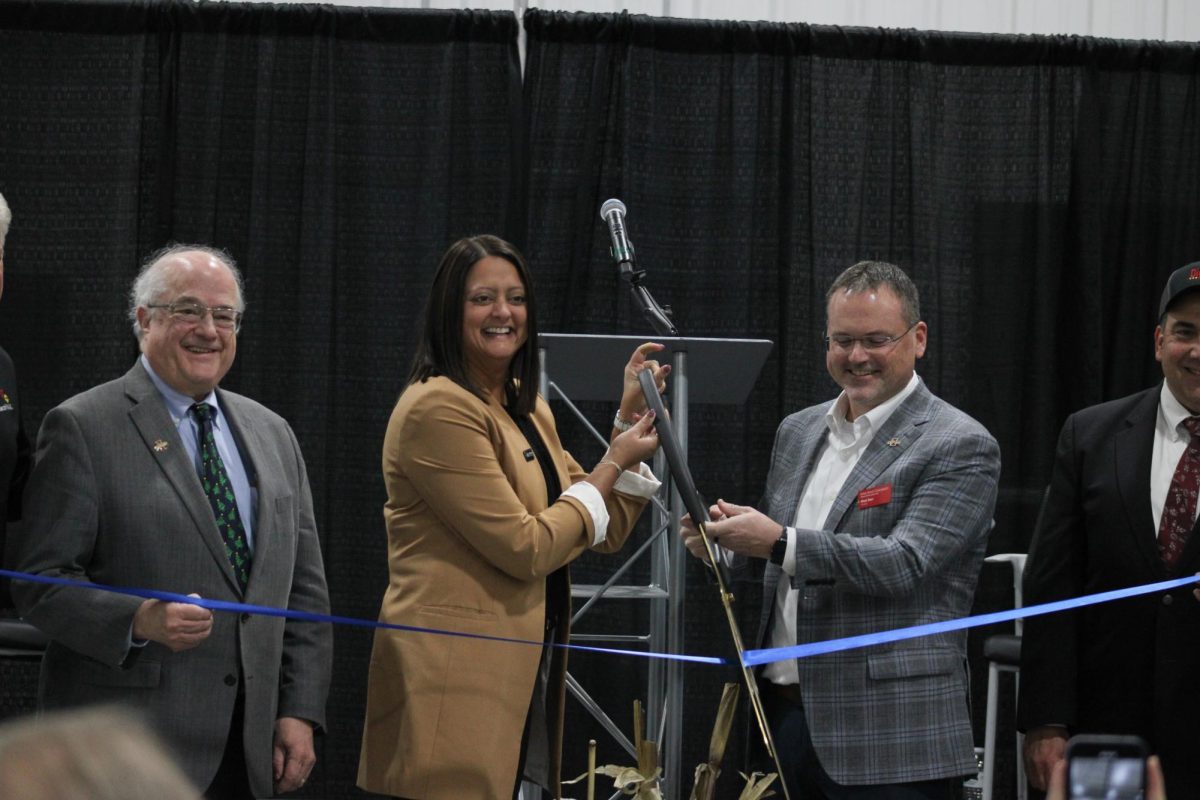Professor David Peterson creates a one-of-a-kind learning experience by combining a childhood hobby with a lifelong interest in political science. Peterson’s unique method teaches how politics have evolved over time by examining pop culture, specifically comic books.
Political Science / Sociology 334: Politics & Society examines how movies, music and memes have been inspired and influenced by American politics. Influence of the trends has grown with the rise of social media and mash-up culture, with specific topics on American politics, gender and sexuality and race and ethnicity.
When asked about taking over the class in the spring after the previous instructor retired in December 2022, Peterson explained his idea.
“Actually, I have been thinking about designing a class like this,” Peterson said. “I thought it would work, and my department chair believed it would work as well. It would be different, but we thought students would enjoy it.”
Peterson said the class works best if taught in a more light-hearted way.
“I can teach this in a boring or dry way, but I do not think that conveys the nature of the question, of how our understanding of politics and society evolved and changed,” Peterson said.
The Marvel franchise is a viable route to explore American politics, Peterson said.
“The way that I thought would be interesting, and fun, would be to do this through comic books,” Peterson said. “People are vaguely familiar with the Marvel movies, but comic books are something a little different. Marvel has been telling a story, the same narrative, for 60 to 70 years. The same characters are there, dealing with similar issues, and these characters evolve over time. And the way that they’ve evolved can help us understand how society has evolved.”
Peterson said this idea came to him in his childhood.
“I loved comics as a kid, stopped for a while and then started reading again,” Peterson said.
When Peterson discovered that there are over 25,000 comics available on the app ‘Marvel Unlimited,’ he thought, “This is cool. I’m reading stories I read as a kid, seeing how characters have evolved over time. Now this is practical. Storylines repeat, but understanding the similarities and differences between them helps us to understand how things change.”
There have been many classes similar to this one across the country but none specific to comparing comics to politics and society. Peterson said it was a struggle to create a syllabus for a class unlike any other.
“The one thing I really struggled with the design was, what were the assignments going to be? With my focus being on content, I started with just making all assignments be papers,” Peterson said.
According to Peterson, the task for those papers is to “find a character that was not discussed in class, and then use the lenses and focus topics that we talked about in class to talk about that character across their timeline,” aiming to give students the flexibility to read other comics that interest them.
Peterson said he has assigned class readings to keep everyone on the same page and to teach the criteria and how it connects to the characters over time so that they can do the same on their own.
“I choose assigned readings where characters are grappling with internal conflicts and questions, as they are intended to be comparative to what was happening at that time frame in history,” Peterson said.
Though the class is meant to be fun, Peterson said the students should still walk away having learned about politics.
“The difficulty is striking the balance between enjoyment and rigor,” Peterson said of the challenges of creating a class that has never been done before. “I want my students to enjoy my class, but it isn’t just ‘Let’s talk about comic books and read about them.’ It is deep thinking about what we are learning about society.”
Peterson said in order to determine the effectiveness of his unusual class, he “did try to constantly check in with students about the criteria and if they are finding the whole enterprise silly.” According to Peterson, the response could not be more positive.
“The learning style was different, but exploring the depiction of groups, concepts and themes throughout our history through comics had to have been one of the absolute best ways to do it. It was a lot of fun, and I thought it was a fairly accurate depiction of our country’s history,” said Dylan Miller, a political science major.
Miller enrolled in this course after hearing about it from other students and said comic books are something he has always wanted to get into but has never had the opportunity to do so.
Miller said he initially thought of the class as a fun one.
“I was right, but that didn’t mean I could slouch,” Miller said. “You still had to show up and be ready to participate. Information stuck as a result. I now have comics that I actually want to read after taking the class even if my student brain was telling me that I was supposed to have been just ‘learning.’”
Peterson’s plan played out, according to Miller’s experience.
“Politics in America in the past were at times rough and difficult to take in, but through the comics, you could see themes play out throughout the stories that made it easier to digest and comprehend. It almost makes you feel like you were there at the time,” Miller said.
According to Peterson, Miller’s point of view is shared by the majority of the class.
“Early on, there were lots of students who were nervous about it, didn’t know how to approach it, didn’t know how to think about it,” Peterson said.
Peterson said this initial perception began to change over time.
“To use comics in this way, to use it as this lens of understanding society, I think people really liked and learned a lot from it,” Peterson said.
With this class still in its early stages, Peterson continues to improve it by incorporating extensive student feedback to provide the most effective education, specifically to allow students to “be more flexible, creative and individualistic.”
As the semester comes to a close, Peterson’s most important piece of advice for students is that “even if you do not love comics, maybe this class opens the idea that music, movies or other cultural trends can give us the tools to understand bigger questions about society.”









